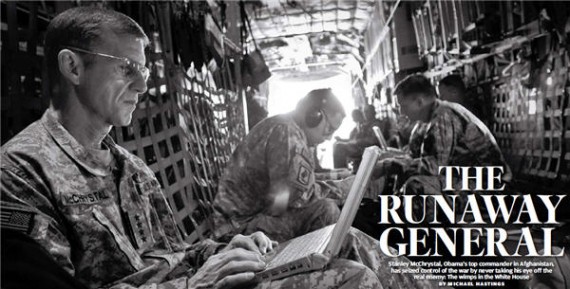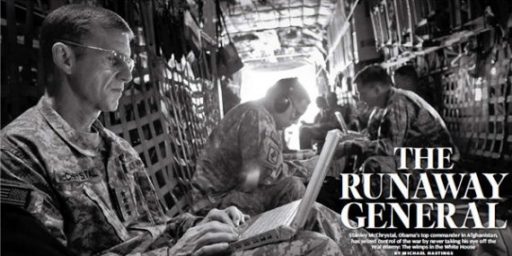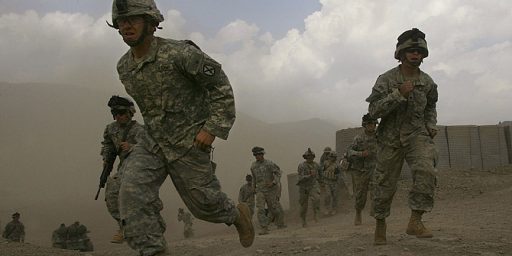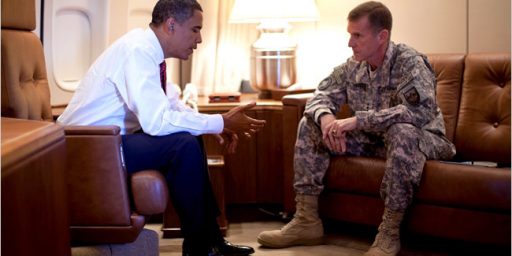Afghanistan Reboot Needed
Stanley McChrystal is being called to face Obama's national security team this morning. They should take the opportunity to come up with coherent Afghanistan policy.
General Stanley McChrystal’s widely-publicized comments deriding senior Obama administration officials and their roles in the Afghanistan strategy have, as he himself has acknowledged, “compromised the mission.”
In my New Atlanticist essay, “Afghanistan: Time for Unified Policy,” I argue that it’s now time for the Obama administration to, once and for all, come up with a coherent strategy and leadership team.
I’ve been quite critical of the administration’s Afghanistan policy since they began its rollout. First, they rolled out a “new” strategy that wasn’t new. Then they fired a perfectly competent commander to put in their own man, McChrystal, to implement a counterinsurgency policy. Then, after he submitted his plan, they spent weeks publicly hemming and hawing over it, not only leaving Allies twisting in the wind but leaving us wondering why they installed McChrystal if they weren’t going to follow the strategy he was specifically chosen to implement. Then, they announced a bizarre compromise solution that included a troop surge, approval of a counterinsurgency military strategy, a political strategy that called for mere counterterrorism and development, and a timetable that allowed for neither.
And, as WaPo’s Anne Kornblut notes this morning, the jockeying between McChrystal and Vice President Biden, who represent the opposite poles in the internal debate, has continued well after the decision was announced.
My takeaway from all this was that President Obama had come to believe, as had I, that the very ambitious set of goals articulated by his predecessor were unattainable but that he believed saying that was politically untenable. Since he had campaigned on Afghanistan as a “war of necessity” that the Bush administration had under-resourced to pursue a “war of choice” in Iraq, he couldn’t very well say, mere months into his term, that Afghanistan wasn’t worth it after all. Further, bugging out before the job was done would lead to charges of weakness that no president, particularly a Democratic president with no military bona fides, wants to fight.
Presuming that McChrystal is going to go at this point, that means yet another change of generals and, necessarily, at least some change in strategy. That’s unfortunate given that there’s very little political will left in the United States and the other NATO countries for this war. But it does provide yet another opportunity for the president to decide what it is he wants to accomplish in Afghanistan and what resources he’s willing to put into it. The two should mesh.
Further, the critics are right: Whatever the ultimate plan, the key players have to be on the same sheet of music. So pick people committed to the president’s agenda, whatever that may be.
More at the link.







If Gen. McChrystal is the right guy in the right job pursuing the strategy that President Obama campaigned on and which, presumably, he believes in, is firing him for openly criticizing people in the administration who have different views a threat to civilian control of the military? Or does it merely reveal dissent within the White House?
I don’t think anyone can match that lack of cynicism, Dave.
(I think voters are aware of both their own and Obama’s cynicism.)
just bug out.